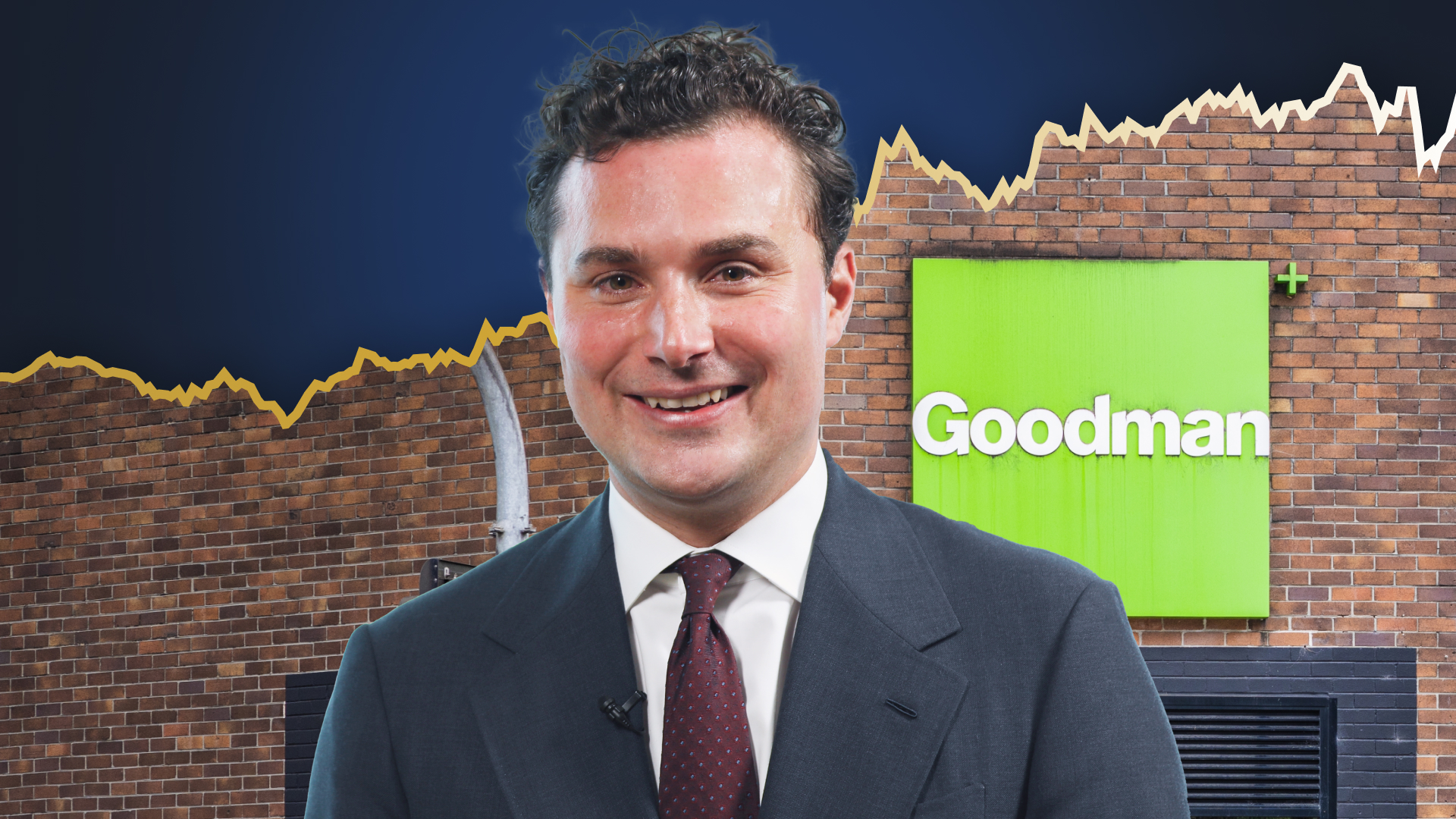Never cheap, always delivers: Why you shouldn't bet against Goodman Group
If this result is anything to go by, it's that three things are certain in life - death, taxes and Gregory Goodman's ability to exceed earnings expectations.
This is the seventh consecutive year that Goodman Group has exceeded its EPS guidance. And while a dive in property valuations saw the company report an NPAT result of -$98.9 million, down from $1.56 billion a year ago, the company has guided to operating earnings per share growth of 9% over the next 12 months.
This came in below analyst expectations - but given Goodman's history of under-promising and over-delivering, it seems investors didn't mind, with the company's share price rising since then.
"Like many investors, we waited on the sidelines for years to dive in to Goodman Group, given it has always looked expensive, and finally took the plunge at around $20 a share," Medallion Financial's Michael Wayne says.
"It's hard to justify the price particularly when you compare it to all the other property companies, but I think that its certainty of earnings and the fact that they're not leveraged like so many other players means that they're able to take on projects when others are struggling to raise money. They've got a big part of the market to themselves at the moment."
In this wire, Wayne digests Goodman Group's latest FY24 result, outlining why he would still buy the stock today despite its consistently eye-watering valuation.
Goodman Group FY24 Key Results
- Operating earnings per share (OEPS) of $1.075 versus FactSet estimates of $1.07
- Operating profit $2.05 billion vs FactSet estimates of $2.21 billion
- NPAT of -$98.9 million vs year-ago $1.56 billion
- Revenue of $1.98 billion vs year-ago $1.97 billion
- FY24 distribution per share of 30c/share, in line with guidance
- Final distribution of 15c/share
- FY25 Guidance: OEPS growth +9.0% y/y, DPS 30cps, operating profit of over $2.2 billion in FY25.

1. What was the key takeaway from this result?
The key takeaway was it was the seventh year in a row where Goodman Group exceeded EPS guidance, so that was definitely a pleasing outcome. In terms of looking at the business more directly, they've started to pick up their commencements again, which is interesting because that will obviously help drive revenue in the years to come.
But I'll say that, the fact that they exceeded expectations again was a positive thing certainly on the FY24 numbers - on the FY25 numbers, not so much.
2. Were there any surprises in the result that you think investors should be aware of?
FY25 guidance was below market expectations. However, given Goodman Group's history of guiding low and then exceeding expectations, it's not entirely a surprise. I suppose one of the other elements that was a little bit interesting was the fact that the project duration times have increased, so that is going to have an impact on revenues in the outer years. However, it should lead to superior margins.
3. Would you buy, hold or sell GMG on the back of this result?
Rating: BUY
There's no doubt that Goodman Group doesn't screen cheap, but it never really has. For that reason, we're not too phased by the valuation given the double-digit expected growth in the earnings profile in the years to come. So, we would be happy buyers of Goodman Group, despite the fact the valuation is high.
We are attracted to the fact that data centres are becoming an increasingly important part of their business and a bigger proportion of their development and work in progress. And we think that has the potential to drive revenue and earnings growth in the years to come as that digitisation theme kicks on.
4. Are you worried about cost blowouts with that data centre buildout? Are there any risks investors should be aware of?
There's no doubt that the costs of data centres are a lot higher, but then again, the yields that they're able to deliver for investors are higher as well. And there is a significant appetite for that. There are also different types of data centres that they're able to develop, whether they be "turnkey" ready or just a powered shell for someone to go in and put their infrastructure in.
There's also the land sales off the back of having those sites on their balance sheet earlier than many of their competitors. So there are different ways that they can play all of that depending on the market conditions, but cost is something that they're watching closely. The reality is they're not building these projects unless the yield on the end product justifies building those assets or selling those assets.
It's also worth pointing out that about 75% of the projects that move into the development phase are in partnership with another party - which reduces the risk considerably. Effectively, they're building something with an already ready-to-go tenant, which makes it then more attractive to sell the asset to someone given the long-term tenant is already in place.
5. From 1 to 5, where 1 is cheap and 5 is expensive, how much value are you seeing on the ASX today?
Rating: 3
I'm going to go three. The ASX certainly isn't as cheap as it was 18 months ago, but it's not overly expensive - particularly, once you strip out the bank valuations like CBA. So we're constructive on the ASX. It's not overtly cheap, but it's not nosebleed expensive like other regions in the world.
4 topics
1 stock mentioned
1 contributor mentioned


